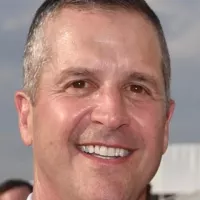The Onion is an American digital media company and newspaper known for publishing satirical articles on current events. Founded in 1988 as a weekly print publication in Madison, Wisconsin, it expanded online in 1996 and introduced satirical news audio and video content as the Onion News Network in 2007. The print edition ceased in 2013, and Onion Labs, an advertising agency, was launched. The Onion has been acquired multiple times, including by Univision in 2016, which later merged it into Gizmodo Media Group. It was then sold to Great Hill Partners in 2019, forming G/O Media, and subsequently sold to Global Tetrahedron in 2024, which revived the print edition.
1900: Our Dumb Century
The Onion's Our Dumb Century presented mocked-up newspaper front pages from across the 20th century, presented as if the publication had been continuously in print since before 1900.
August 29, 1988: The Onion Founded
On August 29, 1988, The Onion was founded as a weekly print publication in Madison, Wisconsin.
1988: Dikkers Becomes Editor
In 1988, Scott Dikkers became de facto editor by the third issue of The Onion.
1988: The Onion's Creation
In 1988, The Onion was created, and for the next 25 years the print edition ran until December 2013.
1989: Keck and Johnson Sell The Onion
In 1989, Tim Keck and Christopher Johnson sold The Onion to Scott Dikkers, Peter Haise, and Jonnie Wilder for $16,000.
1990: Wilder Sells Shares
In late 1990, Jonnie Wilder sold her shares of The Onion for $15,000.
1993: Karlin Joins The Onion
In 1993, Ben Karlin joined The Onion as a writer and editor after graduating from the University of Wisconsin.
1993: The A.V. Club Founded
In 1993, The A.V. Club, a non-satirical entertainment and pop culture publication, was founded by The Onion.
1993: Stephen Thompson Founds Entertainment Section
In the summer of 1993, Stephen Thompson founded The Onion's entertainment section.
1994: Plans for "The Comedy Castaways"
In 1994, The Onion, Inc. planned to create a new sketch comedy show called The Comedy Castaways.
1995: The Onion Franchised in Denver
In 1995, Dave and Jeff Haupt purchased a license to franchise The Onion in Denver, Colorado, paying $25,000.
1995: The A.V. Club's Renaming
In 1995, The Onion's entertainment section was renamed The A.V. Club.
May 1996: The Onion Launches Online Version
In May 1996, Jack Szwergold launched an online version of The Onion in response to websites copying Onion print articles without attribution.
1996: Karlin Moves to Los Angeles
In 1996, Ben Karlin moved to Los Angeles and joined other former Onion staff members to create a pilot for a news parody.
1996: The Onion Goes Online
In 1996, The Onion started publishing online.
1996: Onion Segments on The Dana Carvey Show
In the spring of 1996, Ben Karlin and Scott Dikkers collaborated with Robert Smigel and Dana Carvey to create four short Onion news segments for The Dana Carvey Show.
1997: "Deadline: Now" Pilot Completed
In 1997, the 15-minute pilot for "Deadline: Now" was completed, but it was not picked up for production.
January 27, 1998: Virtual Bill Premieres on MTV
On January 27, 1998, MTV premiered Virtual Bill, a collaboration between writers of The Onion and 3-D character studio Protozoa.
December 17, 1998: Virtual Bill Returns to MTV
On December 17, 1998, Virtual Bill returned to MTV with another TV special and an interactive web special produced by Pulse.
January 1999: Karlin Becomes Head Writer of The Daily Show
In January 1999, Ben Karlin became the head writer of The Daily Show after Jon Stewart became the host.
March 1999: Webby Award Win
In March 1999, The Onion's website won its first Webby Award in the category of "Humor".
1999: Dikkers' First Editor Tenure Ends
In 1999, Scott Dikkers' first tenure as editor-in-chief of The Onion came to an end.
1999: Launch of The Onion Radio News
In 1999, The Onion Radio News, an audio podcast/radio show, was launched by The Onion.
1999: First Publication of Our Dumb Century
In 1999, The Onion published its first book, Our Dumb Century, which compiles previously produced content into a collected volume.
1999: Bob Odenkirk Praises The Onion
In 1999, comedian Bob Odenkirk praised The Onion as "the best comedy writing in the country".
April 2000: DreamWorks Options Onion Stories
In April 2000, DreamWorks Studios optioned two stories from The Onion: "Canadian Girlfriend Unsubstantiated" and "Tenth Circle Added to Rapidly Growing Hell".
April 2000: Comedy Central Acquisition Falls Through
In April 2000, a $12 million deal for Comedy Central to acquire The Onion fell through due to the dot-com crash.
June 2000: The State of The Onion Panel Discussion
In June 2000, writers and editors of The Onion participated in a Comedy Central panel discussion moderated by Jeff Greenfield titled "The State of The Onion" during the "Toyota Comedy Festival 2000".
September 16, 2001: NYC Print Edition Launch Postponed
The planned launch of The Onion's New York City print edition was postponed on September 16, 2001, due to the September 11 attacks.
November 2002: Controversial Article Removed
In November 2002, an op-ed piece satirically bylined by Michael Bay titled "Those Chechen Rebels Stole My Idea" was removed from The Onion's website without explanation.
2002: Online Readership Demographics
In 2002, editor-in-chief Rob Siegel commented on the demographics of The Onion's online readers, noting a mix of students and professionals from companies like Microsoft and Dell.
April 2003: Haise Sells Ownership Shares
In April 2003, Peter Haise sold his ownership shares to David Schafer for $1.7 million.
2003: Haise Transfers Ownership
In 2003, Haise transferred ownership contingent on being listed as "Executive Producer" in the film's credits
2003: Siegel Quits as Editor
In 2003, Robert Siegel quit his day-to-day role at The Onion to focus on writing screenplays full-time, with Carol Kolb taking over as editor.
2003: Creation of The Onion Movie
In 2003, The Onion Movie was created, written by Robert Siegel and Todd Hanson. Fox Searchlight Pictures was originally on board to release the movie, called The Untitled Onion Movie, but directors and writers walked away from the project.
September 2005: Cease-and-Desist Letter from the Bush Administration
In September 2005, President George W. Bush's assistant counsel, Grant M. Dixton, sent The Onion a cease-and-desist letter for using the presidential seal in an online parody.
2005: Dikkers Returns as Editor-in-Chief
In 2005, Scott Dikkers was rehired as editor-in-chief of The Onion.
2005: Office Move and Dikkers Rehired
In 2005, The Onion moved its New York City offices to SoHo, and Scott Dikkers was rehired as editor-in-chief.
June 2006: Siegel Tapped by Miramax Films
In June 2006, it was announced that Siegel was tapped by Miramax Films to write the screenplay for a comedy titled "Homeland Insecurity", about Arab-Americans mistaken for terrorists.
July 2006: Viacom Acquisition Rumors and Expansion
In July 2006, business media reported that Viacom intended to acquire The Onion. After the sale price was rejected, the company began expanding with unpaid interns to appear larger to potential buyers.
2006: Joe Randazzo Becomes Writer
In 2006, Joe Randazzo became a writer for The Onion. He became the first Onion editor with no connection to its initial era in Madison.
2006: New Regency Productions takes over Onion Movie
In 2006, New Regency Productions took over the production of The Onion Movie.
April 2007: Launch of Onion News Network
In April 2007, The Onion launched Onion News Network, a daily web video broadcast, investing $1 million in the production and hiring 15 new staffers.
April 2007: Onion News Network Launched
In April 2007, The Onion launched Onion News Network, which is a parody of 24-hour cable news networks.
November 2007: Mills Interview About Onion News Network's Success
In November 2007, former Onion President Mills stated in a Wikinews interview that the Onion News Network had been a huge hit, receiving over a million downloads a week.
2007: Publication of Our Dumb World
In 2007, The Onion released Our Dumb World, a fully original book.
2007: Satirical News Audio and Video Launched
In 2007, The Onion started publishing satirical news audio and video online as the Onion News Network.
June 3, 2008: DVD Release of The Onion Movie
On June 3, 2008, The Onion Movie, after being in limbo for two years, was released directly on DVD, credited as being directed by James Kleiner.
2008: Kolb Returns to ONN, Randazzo Takes Over The Onion
In 2008, Kolb returned as head writer of the Onion News Network, while Dikkers handed off editorial control of The Onion itself to Joe Randazzo.
2008: Dikkers Leaves Editor Role Again
In 2008, Scott Dikkers ended his second term as editor-in-chief.
2008: Financial Crisis
In 2008, The Onion News Network on television was a major source of revenue amid diminished newspaper advertising in the aftermath of the 2008 financial crisis.
2008: Launch of Onion Digital Studios YouTube Videos
In 2008, The Onion launched a series of YouTube videos produced by its 'Onion Digital Studios' division, funded in part by a grant from YouTube.
February 3, 2009: Launch of Onion Sports Network
On February 3, 2009, The Onion launched a spin-off of the Onion News Network called the Onion Sports Network.
April 2009: Peabody Award for Onion News Network
In April 2009, the Onion News Network received a Peabody Award for providing "ersatz news that has a worrisome ring of truth."
July 2009: Satirical Media Consolidation Leak
In July 2009, The Onion satirized media consolidation by leaking false rumors that the newspaper would be sold to a Chinese company—Yu Wan Mei Corporation—resulting in a week-long series of China-related articles.
July 22, 2009: Editor Clarifies Ownership on NPR
On July 22, 2009, editor Joe Randazzo clarified on NPR's All Things Considered that "we are, in fact, still a solvent independently owned American company."
November 2009: Release of Our Front Pages: 21 Years of Greatness, Virtue, and Moral Rectitude From America's Finest News Source
In November 2009, The Onion released "Our Front Pages: 21 Years of Greatness, Virtue, and Moral Rectitude From America's Finest News Source", which compiled front pages from the publication's history.
2009: End of The Onion Radio News
In 2009, The Onion Radio News, an audio podcast/radio show produced by The Onion since 1999, ended.
January 2011: Launch of Two TV Shows
In January 2011, The Onion launched two TV shows on cable networks: Onion SportsDome premiered January 11 on Comedy Central, and the Onion News Network premiered January 21 on Independent Film Channel (IFC).
March 2011: Onion News Network Renewed for Second Season
In March 2011, IFC officially announced the renewal of the Onion News Network for a second season.
June 2011: A.V. Club editor attack and lack of health insurance
In June 2011, A.V. Club Philadelphia city editor Emily Guendelsberger was attacked, and her job did not provide health insurance to cover hospital bills, leading to criticism of Onion, Inc.'s treatment of its employees.
June 2011: Cancellation of Onion SportsDome
In June 2011, Comedy Central officially announced the cancellation of Onion SportsDome.
August 2011: Website Paywall Testing Begins
In August 2011, The Onion's website began testing a paywall model for non-U.S. visitors, requiring a monthly or annual charge to read more than five stories within 30 days.
August 2011: Unionization of Onion News Network Writing Staff
In August 2011, the Writers Guild of America, East, AFL–CIO, announced the unionization of the Onion News Network writing staff, averting a potential strike over pay and benefits.
September 2011: Editorial Operations Move to Chicago
In September 2011, The Onion announced that it would move its editorial operations to Chicago, joining its corporate headquarters.
March 2012: Cole Bolton Named Editor-in-Chief
In March 2012, Cole Bolton was named the new editor-in-chief of The Onion.
March 2012: Cancellation of Onion News Network
In March 2012, IFC officially announced the cancellation of the Onion News Network.
March 2012: Insights into Chicago Move and Dikkers' Return
In March 2012, articles in The Atlantic Wire and New York magazine's Daily Intelligencer explored the internal issues surrounding the Chicago move. Founding editor Scott Dikkers returned to the publication hoping to find a "younger and hungrier" pool of talent in Chicago.
August 2012: Former Onion Writers Team Up with Adult Swim
In August 2012, a group of former The Onion writers teamed up with Adult Swim to create comedy content on a website called Thing X.
2012: Publication of The Onion Book of Known Knowledge
In 2012, The Onion published The Onion Book of Known Knowledge, a fully original book.
February 2013: The Onion Added to Advertising Age's "Digital A-List 2013"
In February 2013, The Onion was added to Advertising Age's "Digital A-List 2013" since the publication has thrived since the publication's 2012 move to consolidate operations and staff in Chicago.
June 2013: Thing X Shuts Down
In June 2013, it was announced that Thing X would be shutting down with some staff moving over to parent website adultswim.com on June 18, 2013.
June 18, 2013: Thing X staff moves to adultswim.com
On June 18, 2013, some of the staff from Thing X moved over to the parent website adultswim.com as Thing X shut down.
November 2013: The Onion Announces Move to All-Digital Format
In November 2013, the publication announced that The Onion would move to an all-digital format by December 2013, citing a 30% year-over-year growth in page views to the publication's website.
December 13, 2013: Final Print Edition Published
On December 13, 2013, The Onion published its final print edition.
December 2013: Print Edition Ceased Publication
By the time the print edition of The Onion ceased publication in December 2013, it was only available in Chicago, Milwaukee and Providence.
2013: Characterization of The Onion as Political
In 2013, Noreen Malone of The New York Times and journalist David Weigel commented on The Onion's political nature, with Malone characterizing it as leftist and Weigel criticizing its advocacy for popular views.
2013: Controversial Subway Promotion Article
In 2013, The Onion published a controversial article about a fake Subway promotion themed around the September 11 attacks, featuring offensive jokes and imagery that garnered significant criticism.
2013: Defamation Claim from Michael Cohen
In 2013, The Onion received an email from Michael Cohen claiming that an article published about Donald Trump was defamation, and demanded its removal with an apology.
2013: End of Print and Launch of Onion Labs
In 2013, The Onion stopped publishing its print edition and launched Onion Labs, an advertising agency.
June 2014: ClickHole Launched
In June 2014, The Onion launched the spinoff website ClickHole, which satirizes "clickbait" websites.
November 2014: Bloomberg News Reports Possible Sale
In November 2014, Bloomberg News reported that The Onion had hired a financial adviser for a possible sale.
2014: ClickHole Founded
In 2014, ClickHole, a satirical website parodying clickbait, was founded by The Onion.
2014: Haise sues Schafer
In Spring 2014, Haise sued Schafer in Palm Beach County over not being listed as an "Executive Producer" in the film's credits. The lawsuit was ultimately settled with Haise claiming an undisclosed financial victory.
2014: Bolton Interview with SplitSider
In a 2014 interview with SplitSider, Cole Bolton said, "I was never in an improv group, never in a sketch group, never wrote for an Onion parody in college", he mentions about his decision to work at the Onion.
June 2015: Hannah Replaced as CEO by McAvoy
In June 2015, Hannah was replaced as CEO by Mike McAvoy, who he had hired a decade earlier as a financial controller.
September 21, 2015: StarWipe Launched
On September 21, 2015, StarWipe launched as a satirical spinoff of The A.V. Club centered on celebrity culture.
2015: Last New Content released
Onion News Network had not released new content since 2015, until September 2024.
January 2016: Univision Communications Purchases Stake in Onion, Inc.
In January 2016, Univision Communications purchased a 40% stake in Onion, Inc. for between $85–100 million. The Onion and Gizmodo Media Group was merged into Univision's Fusion Media Group
June 17, 2016: StarWipe Closed
On June 17, 2016, StarWipe was closed.
2016: Acquisition by Univision
In 2016, Univision acquired The Onion, later merging it into Gizmodo Media Group.
January 2017: Partnership with Lionsgate Films and Serious Business
In January 2017, The Onion partnered with Lionsgate Films and production company Serious Business to develop multiple film projects.
June 16, 2017: Controversial Big Show Article
On June 16, 2017, The Onion published an article describing professional wrestler Big Show being killed by WWE, leading to criticism for satirizing murder and causing confusion among fans.
September 2017: Bolton and Berkley Step Down
In September 2017, Cole Bolton and Ben Berkley stepped down to join Elon Musk's Thud. Chad Nackers was elevated from head writer to editor-in-chief.
February 5, 2018: Release of A Very Fatal Murder Podcast
On February 5, 2018, The Onion published its first podcast, titled A Very Fatal Murder, a six-part parody of true crime podcasts.
April 2018: Employees Unionized
In April 2018, the employees of the company unionized with The Writers Guild Of America, East.
July 2018: Univision Lays Off Onion Staff
In July 2018, Univision laid off 15% of Onion staff to support a sale of Onion Inc. and Gizmodo Media Group.
December 20, 2018: Contract Agreement with Management Reached
On December 20, 2018, The Writers Guild Of America, East, representing the employees of The Onion, reached a contract agreement with management.
April 8, 2019: Great Hill Partners Acquires Onion Inc.
On April 8, 2019, private equity firm Great Hill Partners acquired Onion Inc. and Gizmodo Media Group from Univision for an undisclosed amount to form G/O Media.
May 2019: Regret Over Joe Biden Caricature
In May 2019, former Onion editor Joe Garden published an op-ed in Vice expressing regret over The Onion's caricature of Joe Biden, feeling it distracted from serious concerns.
2019: Sale to Great Hill Partners
In 2019, Gizmodo Media Group sold The Onion to Great Hill Partners, forming G/O Media.
January 16, 2020: Launch of The Topical Podcast
On January 16, 2020, The Onion expanded its podcast offerings to include The Topical, in a partnership with Sony Music, a satirical news podcast.
February 2020: ClickHole Acquired by Cards Against Humanity
In February 2020, ClickHole was acquired by Cards Against Humanity.
May 20, 2021: Final Episode of The Topical Podcast
On May 20, 2021, The Onion released the final episode of The Topical, a satirical news podcast.
October 3, 2022: Amicus Curiae Brief Filed with Supreme Court
On October 3, 2022, The Onion filed its first amicus curiae brief with the Supreme Court of the United States in the case of Novak v. City of Parma, supporting Anthony Novak's petition with numerous jokes.
2022: Current Editor of The Onion
As of 2022, the current editor of The Onion is Chad Nackers.
March 2024: G/O Media Sells The A.V. Club and Seeks Buyers for The Onion
In March 2024, G/O Media sold The A.V. Club to Paste magazine and was reported to be seeking buyers for The Onion.
March 2024: The A.V. Club Acquired by Paste Magazine
In March 2024, The A.V. Club was acquired by Paste magazine.
April 2024: Sale to Global Tetrahedron and Print Revival
In April 2024, G/O Media sold The Onion to Global Tetrahedron, a firm created by Jeff Lawson, who revived the print edition in August of that year.
April 25, 2024: The Onion Sold to Global Tetrahedron
On April 25, 2024, G/O Media sold The Onion to Chicago firm Global Tetrahedron, owned by Twilio founder Jeff Lawson, with Ben Collins as CEO.
August 2024: Print Edition Revived
The Onion revived its print edition in August 2024, as a paid subscription with monthly issues, printing a special 40,000-copy run for the Democratic National Convention that month.
August 2024: Subscription Launched
Under Global Tetrahedron ownership, in August 2024, The Onion launched a subscription that included a new monthly print edition.
November 14, 2024: Attempt to Purchase InfoWars
On November 14, 2024, Global Tetrahedron attempted to purchase InfoWars, with the intent to turn it into a parody and add gun violence prevention information.
August 2025: Subscriber Count Update
As of August 2025, The Onion has 53,000 subscribers.
2025: Bankruptcy Court Rejected the Purchase Attempt
In early 2025, the bankruptcy court rejected the purchase attempt, as InfoWars's parent company was no longer in bankruptcy and thus the website was no longer an asset eligible for auction through the court.
Mentioned in this timeline

Donald John Trump is an American politician media personality and...
Home Box Office HBO is an American pay television service...

Bill Clinton the nd U S President - served as...
Facebook is a social media and networking service created in...

The White House located at Pennsylvania Avenue NW in Washington...

Joe Biden is an American politician who served as the...
Trending

24 minutes ago Casey Dawson Withdraws from 10,000m, Carries Out Fantasy Football Punishment, Races in 5,000m.

1 hour ago Alex de Minaur Dominates Rotterdam, Replacing Alcaraz and Defeating Wawrinka: A Tennis Triumph

1 hour ago Crime 101: Hemsworth, Ruffalo Thriller Evokes De Niro and Pacino's Heat.

1 hour ago John Harbaugh reflects on 'tough' Ravens exit, looks toward Giants' future in 2026.

2 hours ago Tottenham considers Igor Tudor, ex-Juventus boss, for manager role amidst contract offer.

3 hours ago Derek Carr Eyes NFL Return: Potential Teams and Future Free Agency Speculation.
Popular

Kid Rock born Robert James Ritchie is an American musician...
The Winter Olympic Games a major international multi-sport event held...

Barack Obama the th U S President - was the...

XXXTentacion born Jahseh Dwayne Ricardo Onfroy was a controversial yet...

Michael Joseph Jackson the King of Pop was a highly...

Michael Jordan often known as MJ is a businessman and...
